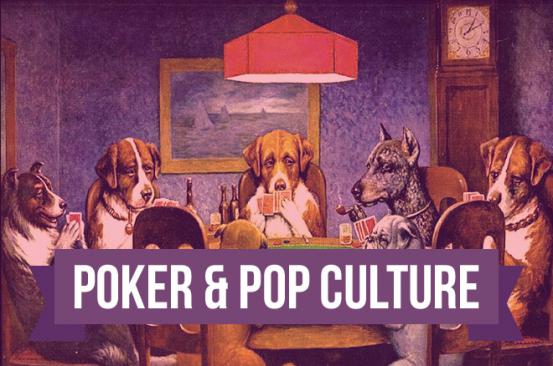- Commissioner’s statement on Ventura, Marte
- Ronnie O’Sullivan: Masters champion ‘felt so vulnerable’ in final
- Arron Fletcher Wins 2017 WSOP International Circuit Marrakech Main Event ($140,224)
- Smith challenges Warner to go big in India
- Moncada No. 1 on MLB Pipeline’s Top 10 2B Prospects list
- Braves land 2 on MLB Pipeline’s Top 10 2B Prospects list
- Kingery makes MLB Pipeline’s Top 10 2B Prospects list
- New Zealand wrap up 2-0 after Bangladesh implosion
- Mathews, Pradeep, Gunathilaka to return to Sri Lanka
- Elliott hopes for rain for Poli
Poker & Pop Culture: Telling the Story of America’s Favorite Card Game
- Updated: May 3, 2016

It’s a Saturday afternoon in 1944. You’ve wandered into the local movie theater for a few hours of entertainment, hoping perhaps to miss the newsreels covering recent battles in Europe or attacks in the Pacific in favor of some lighter fare. Or say it’s last week, and after a spin through the dial you’ve paused on one of the classic film networks, again seeking something less dispiriting than what’s streaming from the news channels 24-7.
You happen on an already-begun western, Tall in the Saddle starring John Wayne. Such might well have occurred during the 1940s when arrivals and departures of movie patrons didn’t strictly adhere to films’ scheduled show times. So, too, might it happen today in our otherwise on-demand world, with the sight of the Duke entering an older gentleman’s office temporarily halting your remote button-pushing progress.
“Mr. Rocklin,” begins the older fellow who squints uncertainly through a pair of round bifocals. “What happened between you and my stepson last night?” he asks with a quizzical look.
Cut to Wayne — that is, Mr. Rocklin — who hesitates just a moment as if considering the best way to answer. Then, with an earnest look, he does.
“Poker,” he says.
“Oh,” comes the nodding response, and the pair and plot move on.
Nothing more needs to be said. The audience nods as well, then and now. We all know poker, after all, whether we happen to play America’s favorite card game or not. Don’t we?
We know poker as a game played by cowboys and card sharps, by soldiers and scouts, by presidents, peasants, and painted dogs. We know that unlike hearts or euchre or crazy eights, poker often requires players to match not just cards and wits, but egos and nerve as well. It’s a game in which the competition can be intellectual, emotional, mental, psychological, analytical, verbal, and — as appears might have been the case with Rocklin and the elderly gentleman’s stepson the night before — even physical.
It’s a game that suits the familiar image of the Old West cowboy Wayne is portraying, a figure of rugged independence who commands respect, who instinctively understands the relationship between risk and reward, and who never shies from conflict. It’s also a game befitting of the image of America itself, the country in which poker originated and for which the mythic cowboy — part real, part imagined — also stands as an emblem.
In other words, when Wayne says “poker,” you don’t have to be a player yourself to have an idea what he means. You don’t even need to know the rules in order to understand the game’s logical place in a story such as this. A game of cards would provide a ready context for characters to clash, given how poker occupied a prominent place in the culture during the time of the Old West. Or during the 1940s, for that matter. Or today.
But step back a moment. Poker? Sure, we know poker. But how well?
I’m not just referring to the way flushes beat straights and sharks devour fish, but to all of those stories and episodes — the real-life ones, those that are made up, and the many combining what’s true and what’s imagined — that have helped make the game seem so familiar to so many.
How much do we know about poker, really?
The “Unpardonably Neglected” Game?
Here’s the deal.
This series of columns starts with a premise. While most of us (especially among the poker-playing part of the population) are well aware the game has played a prominent role in history and culture, especially in America, a lot of the details of that narrative may not be so well known or understood. Furthermore, even those stories and anecdotes that are thought to be “common knowledge” and have been often passed around as the game’s enduring lore are often only known partially, with contexts missing and/or distinctions between fact and fiction disregarded.
That’s not to say the story of poker has been ignored. Just that there are facets of that story that perhaps deserve closer attention.
Speaking of poker deserving greater scrutiny, you’ve probably heard before American author Mark Twain’s famous quote about poker being …
continue reading in source www.pokernews.com
